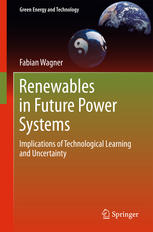

Most ebook files are in PDF format, so you can easily read them using various software such as Foxit Reader or directly on the Google Chrome browser.
Some ebook files are released by publishers in other formats such as .awz, .mobi, .epub, .fb2, etc. You may need to install specific software to read these formats on mobile/PC, such as Calibre.
Please read the tutorial at this link: https://ebookbell.com/faq
We offer FREE conversion to the popular formats you request; however, this may take some time. Therefore, right after payment, please email us, and we will try to provide the service as quickly as possible.
For some exceptional file formats or broken links (if any), please refrain from opening any disputes. Instead, email us first, and we will try to assist within a maximum of 6 hours.
EbookBell Team

4.1
40 reviewsThe book examines the future deployment of renewable power from a normative point of view. It identifies properties characterizing the cost-optimal transition towards a renewable power system and analyzes the key drivers behind this transition. Among those drivers, particular attention is paid to technological cost reductions and the implications of uncertainty. From a methodological perspective, the main contributions of this book relate to the field of endogenous learning and uncertainty in optimizing energy system models. The primary objective here is closing the gap between the strand of literature covering renewable potential analyses on the one side and energy system modeling with endogenous technological change on the other side. The models applied in this book demonstrate that fundamental changes must occur to transform today's power sector into a more sustainable one over the course of this century. Apart from its methodological contributions, this work is also intended to provide practically relevant insights regarding the long-term competitiveness of renewable power generation.